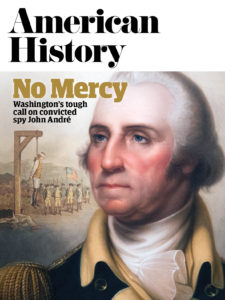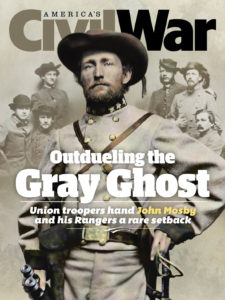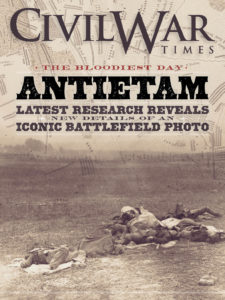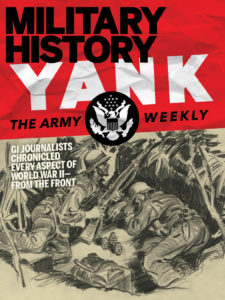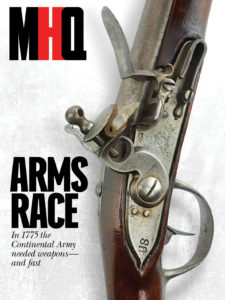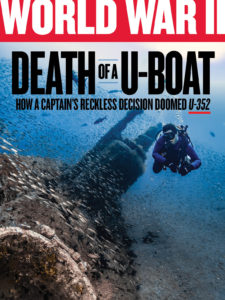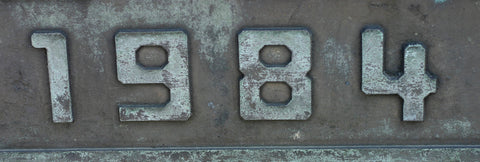
‘1984’: A History of George Orwell’s Dystopian Masterpiece

Belarus has reportedly banned the sale of the book “Nineteen Eighty-Four,” effective May 19. But why would a book about a chronically depressed, chain-smoking bureaucrat in a fictional country have strike such fear into totalitarian governments? And how did such a novel come about in the wake of the Spanish Civil War and World War II?
GEORGE ORWELL’s EARLY LIFE
Born in India in 1903 to a middle-class English family, Eric Blair was raised and educated in England but returned to Asia as an adult, where he worked as a police officer in Burma— an experience that seemed to permanently imbue him with cynicism and a mistrust of authority (and that inspired his first novel, “Burmese Days” and the essay “Shooting an Elephant,” which were published under the nom de plume by which he’d become better known, George Orwell).
After Burma, Orwell returned to England, with a stint in Paris. He made money teaching but also began writing under his new pen name. The lifelong socialist also made a special point of learning more about working-class life firsthand, including getting himself deliberately arrested on Christmas so he could experience jail. Out of this period came “The Road to Wigan Pier,” about the plight of coal miners in the north of England.
Fighting Fascists
In 1936, Orwell went to Barcelona to fight alongside the communist forces battling Francisco Franco‘s Nationalists. He quickly grew disillusioned by the infighting, bureaucracy and political maneuvering of the ostensibly allied anti-Nationalist groups, however — a recurring theme in his later book about his experiences in the Spanish Civil War, “Homage to Catalonia.”
In 1937, he was shot through the neck by a sniper in what was nearly a fatal wound. Unable to return to the front lines, he and his first wife, Eileen, were soon the victims of an internal coup among the communists in Spain: The communists loyal to Joseph Stalin declared the communist faction Orwell had joined to be Trotskyist, and the couple had to escape back to England. Later, records were discovered that showed that the Orwells had been under close observation in Barcelona by Stalin’s spies.
When World War II broke out, Orwell, now medically unfit for military service, was working as a newspaper journalist and occasional BBC radio contributor. Still disgusted by his experiences with the Stalinists during the Spanish Civil War, Orwell decided to follow up on his interest in fairy tales by writing a politically charged fairy tale of his own, “Animal Farm: A Fairy Story,” an allegory about the Russian Revolution and the ruthless rise to power of Stalin (turned into the power-hungry pig Napoleon in the book). “Animal Farm,” as it was retitled in the U.S., was written from 1943 to 1944 and published in 1945. It was an instant success.
GET HISTORY’S GREATEST TALES—RIGHT IN YOUR INBOX
Subscribe to our Historynet Now! newsletter for the best of the past, delivered every Wednesday.
‘THE LAST MAN IN EUROPE’
When the U.S. and U.K. met with the Soviets at the Tehran Conference in 1944, in which they began to explore what the post-World War II world would look like, Orwell saw it as confirmation of his beliefs about the hegemonic nature of power. He began work on a novel that would explore that theme, as well as his philosophy about the intersection of language, thought and propaganda, soon after.
From 1947 to 1948, an increasingly ill Orwell worked on the manuscript on the Scottish island of Jura. He completed it late in 1948 — according to some, that year influenced its final title, though that theory is disputed.
The book’s original title was “The Last Man in Europe,” but his publisher convinced him that “Nineteen Eighty-Four” would be more commercially viable.
It was published in June 1949. Orwell died of tuberculosis only months later, in January 1950.
‘NINETEEN EIGHTY-FOUR’
In what would become Orwell’s defining work, the world is divided into three great totalitarian hegemonies: Oceania (a future U.S. that has absorbed the U.K., which is now known merely as Airstrip One — a reference to how Orwell felt his own country had primarily become a staging ground for American attacks against Germany), Eurasia (the USSR after it has swallowed all of Europe besides the U.K.) and Eastasia (the youngest of the three, a Chinese-Japanese conglomeration that has taken over much of the rest of Asia).
The protagonist, Winston Smith, is a midlevel bureaucrat in Oceania’s Ministry of Truth, where he revises objective history and even the English language to better fit the political aims of the ruling group, the Party. (Orwell himself worked as a censor in the U.K.’s Ministry of Information during World War II.) Smith begins an affair with a fellow worker who’s secretly an activist against the Oceania government and its unseen but ever-present figurehead, Big Brother.
After learning that the Party has committed the country to a perpetual war purely to maintain its grip on power, Smith and his lover are captured, interrogated and brainwashed by the Thought Police. The final words of the novel are: “He loved Big Brother.”
BANNED BY STALIN, Florida, China … and Belarus?
Stalin, who was still incensed by his unsubtle portrayal as a pig in “Animal Farm,” immediately had the book banned in the USSR, and it took four decades and Mikhail Gorbachev’s reforms before Soviet citizens could legally read it.
In much of the rest of the world, the novel was an instant bestseller and critical darling, and terms such as “Newspeak,” “Orwellian” and “2+2=5” have become part of the English language. It even inspired Apple’s iconic Macintosh commercial, directed by Ridley Scott.
Still, it has also garnered its share of criticism, including in 1981 in Jackson County, Florida, when it was held up by some as an example of a supposedly pro-communist and inappropriately sex-filled book that need to be banned in schools. In 2018, as China got rid of term limits for politicians, Chinese officials banned the terms “1984” and “Animal Farm” from social media (along with reference to Winnie the Pooh) — you can still, however, legally buy the actual books in China.
In May 2022, the government of Belarus, which a UN official has characterized as totalitarian, reportedly ordered an immediate halt of all sales of “Nineteen Eighty-Four.”
historynet magazines
Our 9 best-selling history titles feature in-depth storytelling and iconic imagery to engage and inform on the people, the wars, and the events that shaped America and the world. Sale! Save $7.99 on your subscription today!
